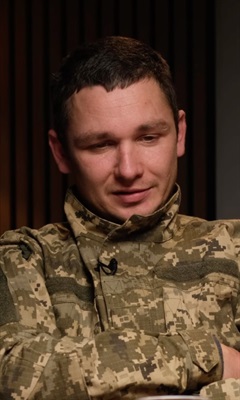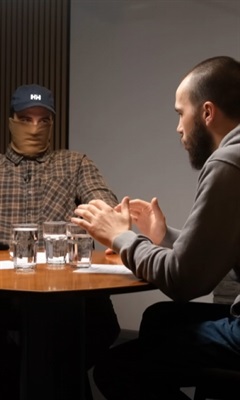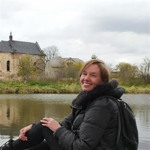How to increase your chances for survival in a besieged city. Advice from a Mariupol resident
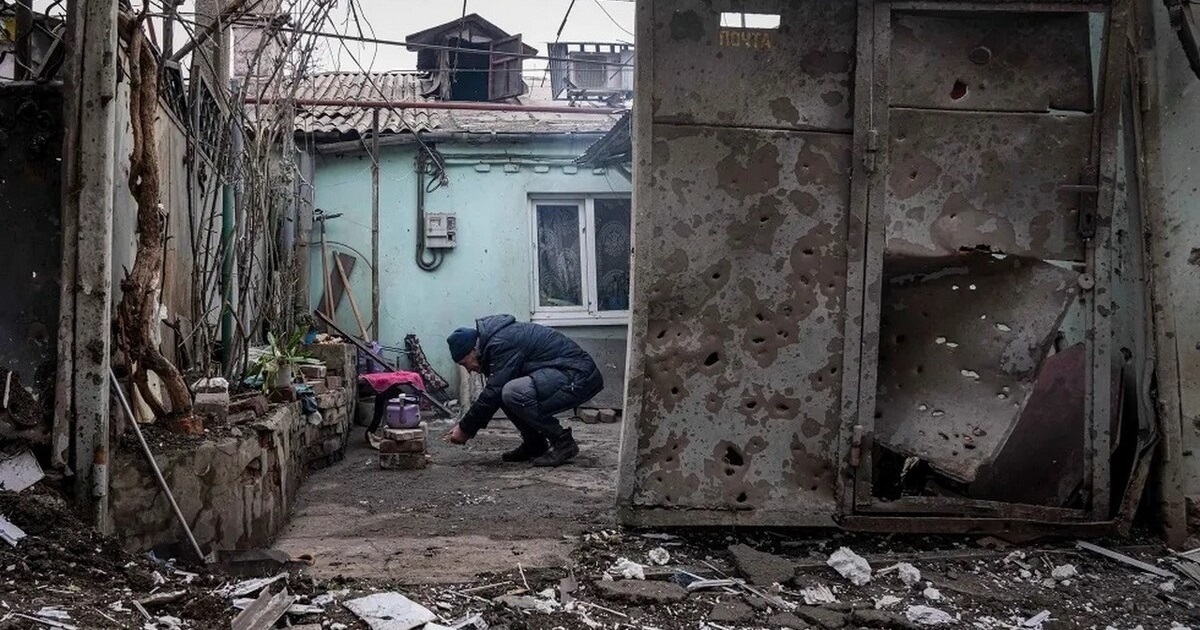
Food and heating
For those, who decided to stay in a city despite a potential siege, Andriy Marusov recommends stockpiling enough food to sustain them for at least two weeks.
“There is no point in getting time-sensitive food products. It is better to rely on supplies with a long shelf life – canned food, cereals, pasta. And it is important to use them sparingly since you never know when and how you will get a chance to get more supplies,” a resident of Mariupol explains.
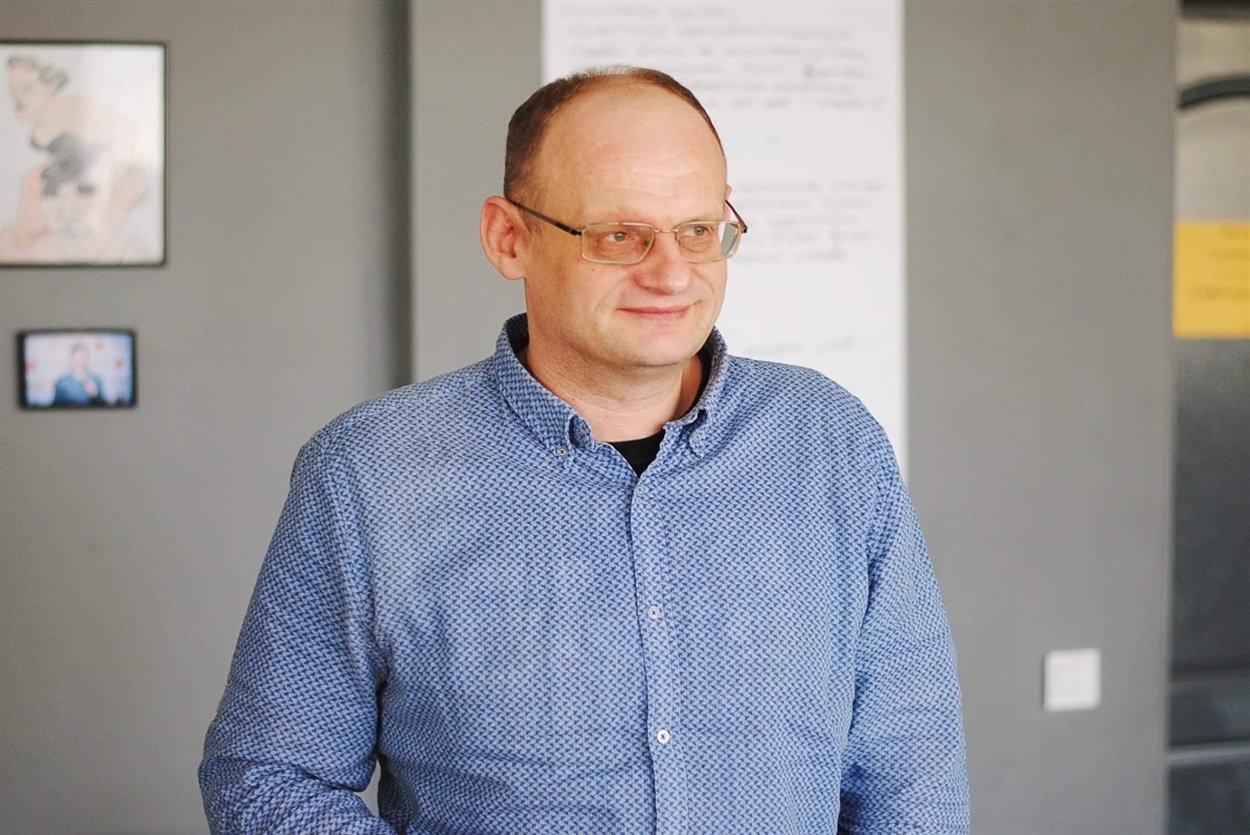 In peaceful times Andriy Marusov was the head of NGO “Arkhi-Misto” (Archaic City). Photo: Andriy Marusov’s Facebook page
In peaceful times Andriy Marusov was the head of NGO “Arkhi-Misto” (Archaic City). Photo: Andriy Marusov’s Facebook page
As to how and where to cook meals, Mariupol shows that after the loss of gas and electricity, meals can be cooked only on an open fire. It requires a few recommendations as well.
“At first, the residents of Mariupol cooked food in their yards. At some point, it even seemed that the city went bananas and organized a massive picnic. However, when shells started hitting their yards, people moved to staircase landings. At first, some complained that it was not right, the walls would be covered in soot, and it was unhygienic. But in situations like these, safety is more important. Being at the entrance of the building, you have at least a chance to survive the shelling. Moreover, you can start a campfire in your apartment, especially if this fire can heat it – at the beginning of March, the temperature in Mariupol dropped to –10–15ºC. Obviously, you have to oversee the campfire to avoid starting a fire accident. A perfect solution is a wood-burning stove, either a purchased one, or the one made from scrap metals: a metal drum, a wash boiler, etc.,” says Marusov.
Searching for firewood
“Personally, I haven’t seen anyone burning furniture, though I assume it’s likely. In my multistoried building, my neighbours collected dry tree branches and cut down the trees in the yard or the nearest public gardens and parks. On March 12, a rocket hit our house and destroyed the upper floors. After that hit, there were many wooden pieces from the window frames and doors so we collected them for the fire. Long story short, you can use everything that burns,” our dialog partner assures us.
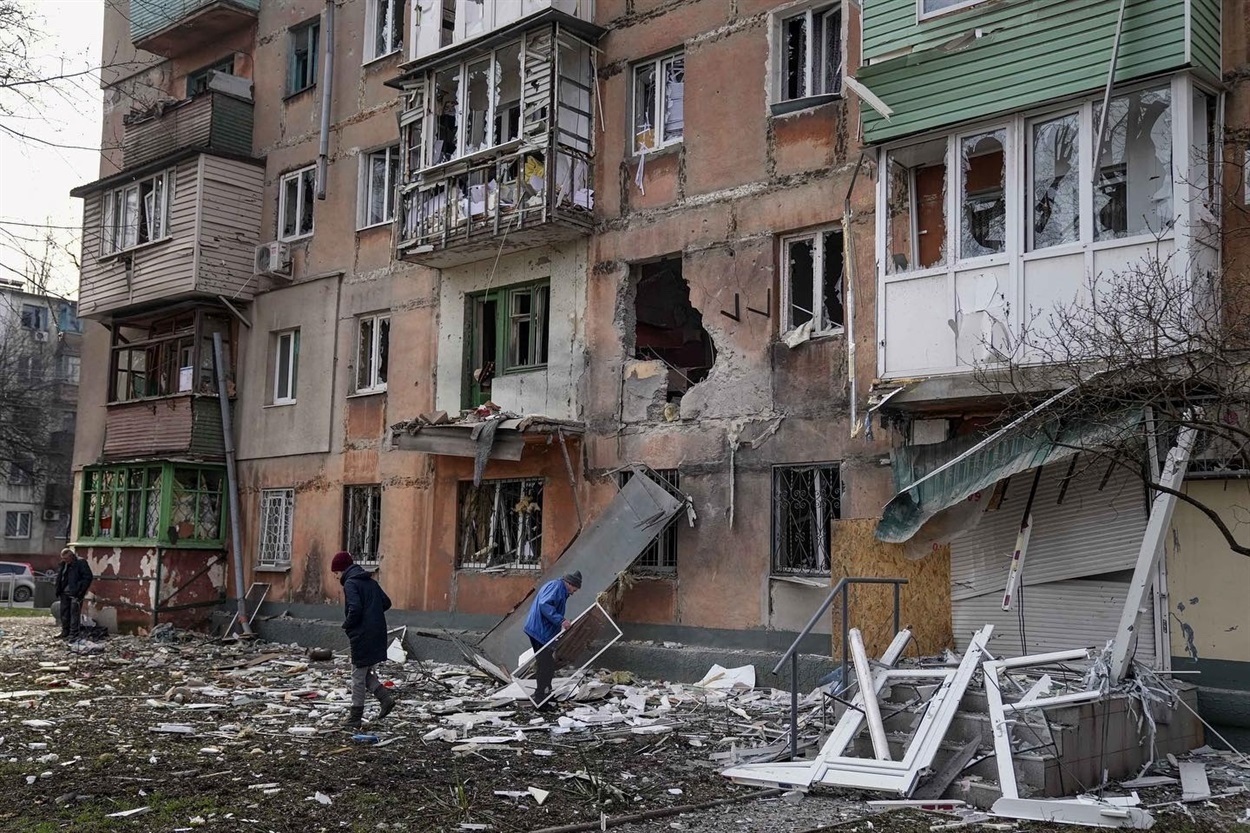 After the shelling, many pieces of windows and furniture are scattered in the courtyards of multistoried buildings and can be collected for a fire. Photo: Evgeniy Maloletka
After the shelling, many pieces of windows and furniture are scattered in the courtyards of multistoried buildings and can be collected for a fire. Photo: Evgeniy Maloletka
Water supplies
One of the most urgent needs in a besieged city is water.
“My first advice to those who choose to stay would be to think about the location of nearby sources of water - natural streams, reservoirs, and wells. An alternative option may be fountains or firefighting water tanks. When a heating plant near our house was damaged, and hot water started flowing out of it, the whole district, including me, went to collect it. When it rained on March 3, it was the first time I saw the lines near the drainpipes - people were collecting water. When it snowed, people collected snow and melted it. Of course, this is not proper drinking water, but if there is no other option, you have to be thankful for what you have. We boiled and used it,” says Andriy Marusov.
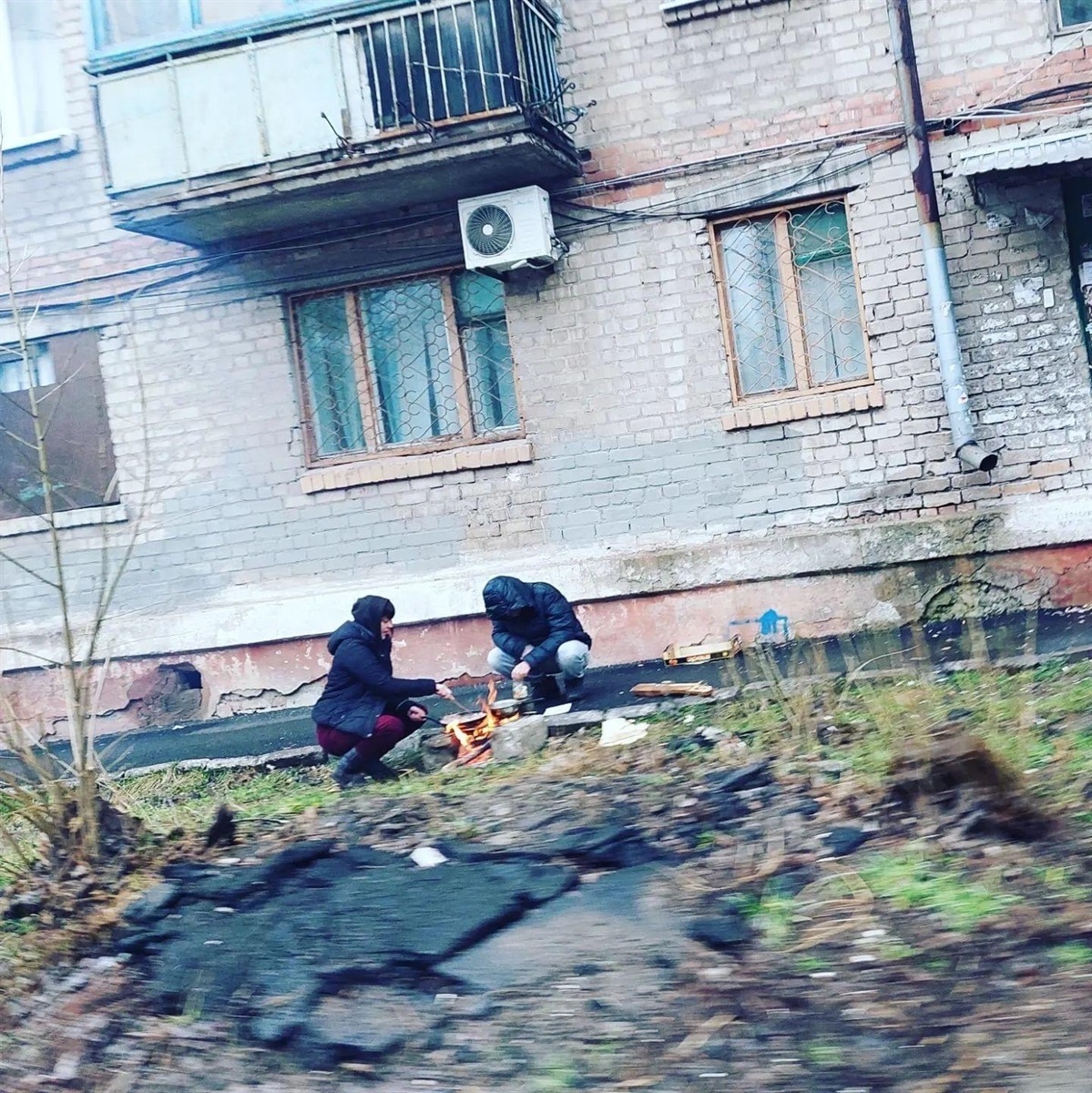 In extreme cases, water can be collected from puddles, but it must be boiled for a long time. Photo: Pravda Gerashchenko
In extreme cases, water can be collected from puddles, but it must be boiled for a long time. Photo: Pravda Gerashchenko
It is always important to disinfect water, for instance, by boiling it, says the historian. Neglecting this rule will lead to infectious diseases, which can be fatal in a besieged city. Boiling water becomes even more critical when the weather gets warmer - an increase in temperature contributes to the spread of infections.
Medicines and cooperation
Medicines can literally save your life, especially if you have to take drugs regularly because of your illness.
“At first, most Mariupol residents didn’t take the threat of a siege seriously. Many people thought that the situation would be like 2014 - there would be a shelling somewhere in the Eastern district whereas the rest of the city would not be affected. Therefore, they did not stock up on medicines. Having this attitude, many pensioners didn’t go to pharmacies. And then the electricity was cut off, pharmacies were closed and later demolished by looters. So, theoretically, there are medicines in the city, but it is not clear where they are and how to get them. And this is a huge problem,” says the interlocutor.
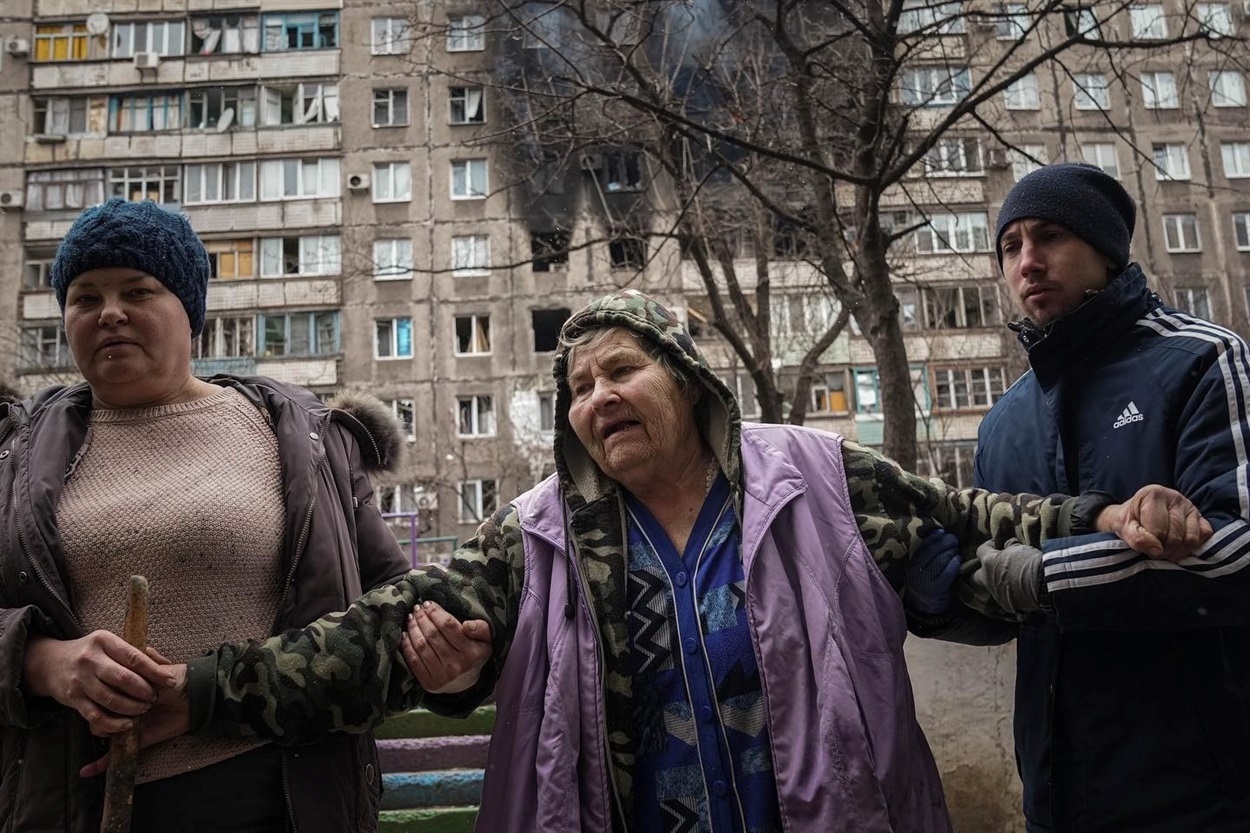 The siege hits the elderly the hardest. Photo: Evgeniy Maloletka
The siege hits the elderly the hardest. Photo: Evgeniy Maloletka
So, if you have not stockpiled any medicines, your best bet is folk medicine or neighbours who may have the necessary drugs.
“It is important not only for you but also for the elderly, as there are many of them, and they are the most vulnerable. They can’t go fetch any water or firewood, or even go down the stairs. It is extremely difficult for them to survive without someone’s help. Women and men of our building united quite quickly to solve urgent problems. Men would collect firewood, and there was an open fire, shared by everybody to cook meals,” says Andriy Marusov.
Shelters and essential things
People tend to hide in the basements of multistoried buildings because there aren’t enough bomb shelters for everybody.
“When our house was hit by a rocket, most people started living in the basement. Except for the residents of floors 1-3, where the risk of shelling was lower. The basements should have blankets, mattresses, essential food, and water supplies. If there is a window in the basement, you can start a fire because it is difficult to protect yourself from the cold with blankets only,” says the Mariupol resident.
Among the vital things, he also mentions the lighting materials - candles, kerosene, homemade lamps, etc. You can use flashlights for some time, but they don’t work long without replaceable batteries. One of the most valuable things under the siege are matches, which may be as good as gold.
Mobile signal and chargers
This paragraph covers two problematic components - the need to charge your phone and the availability of the mobile signal.
“In some places, people managed to charge phones using special generators, deliberately brought and installed for us by our military. If that’s not an option, you can use car batteries. It requires adapters, but, usually, that’s not a problem. There are quite a lot of cars in the streets damaged by the shelling, they definitely won’t go anywhere, but you can still use their batteries. Look for such cars,” advises Andriy Marusov.
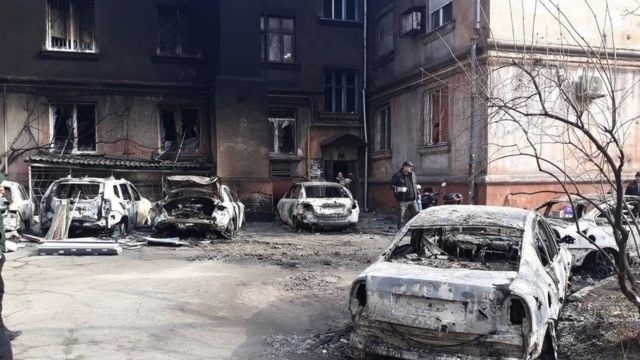 The batteries of some damaged cars can still be used to charge your phone. Photo: bbc.com
The batteries of some damaged cars can still be used to charge your phone. Photo: bbc.com
As for the mobile signal, even in the destroyed city, there are zones with a working mobile signal and even a chance of the Internet connection.
The information about such places is distributed mainly by word of mouth. They can also be identified by crowds trying to contact their relatives and acquaintances or read messages about humanitarian aid or safe evacuation routes.
Top priority
Finally, the advice that should be put first.
“If the official evacuation measures failed, you need to get out on your own - by car or even on foot. In any direction. Just not in the direction of Russia; it is perilous because there are filtration camps. Therefore, you need to use every opportunity to avoid the evacuation lines, organized by the Russians,” Andriy Marusov said.
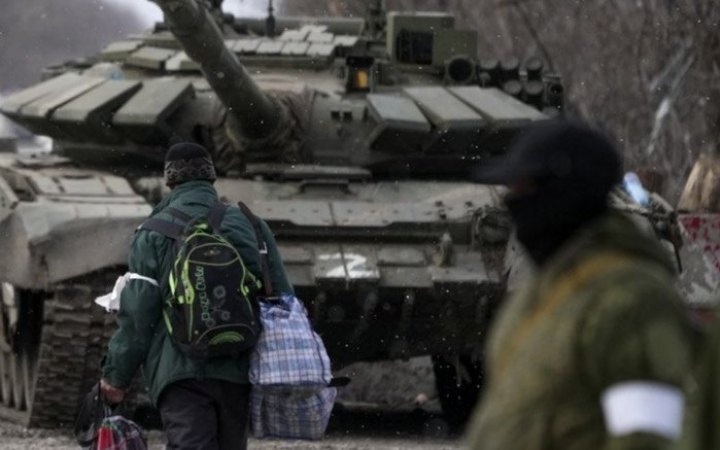 If a city may be besieged, the best solution is to evacuate. Photo: the Chief Intelligence Department of the Ministry of Defence of Ukraine
If a city may be besieged, the best solution is to evacuate. Photo: the Chief Intelligence Department of the Ministry of Defence of Ukraine
He urges the people, trying to leave Mariupol, to be very careful because now many roads are either deliberately mined or covered with unexploded ammunition.
“Mines lie on the roadsides of large highway crossroads. Of course, some of them are buried or disguised. But it doesn’t mean that you can’t use these roads,” - says the historian. “You should just consider this threat and be very careful. The same applies to peripheral roads or even paths, leading out of the city. They pose the same threat or perhaps even higher risk. So, you should think about it carefully when choosing a route.”




